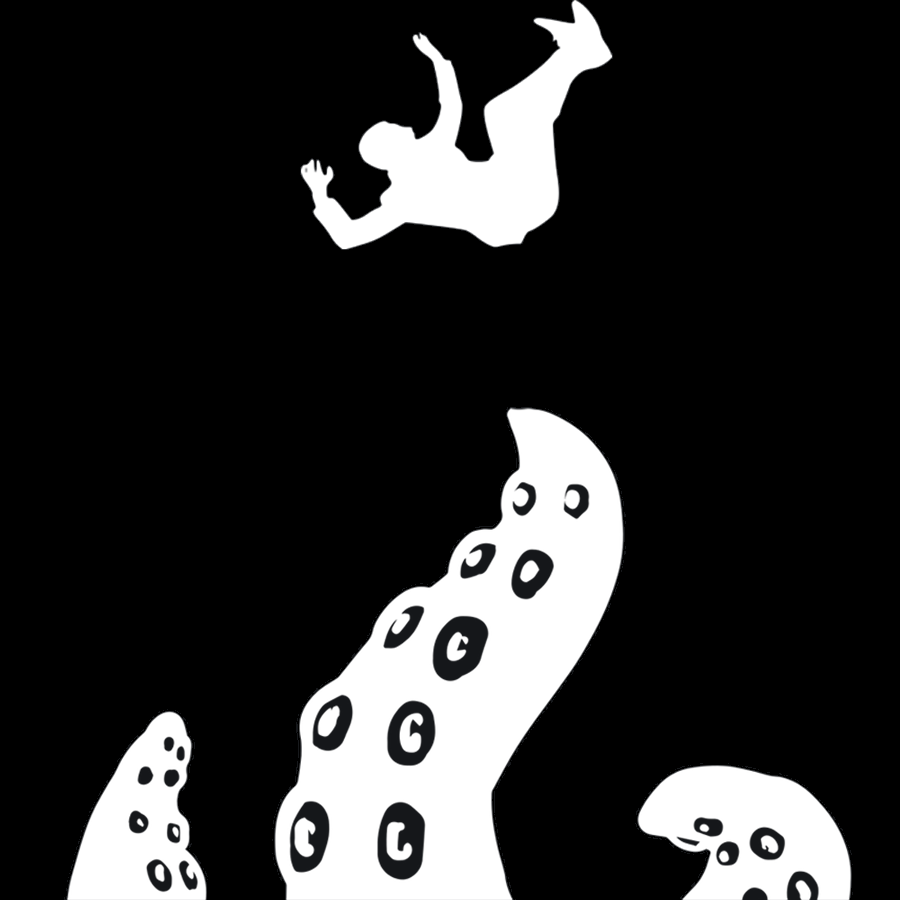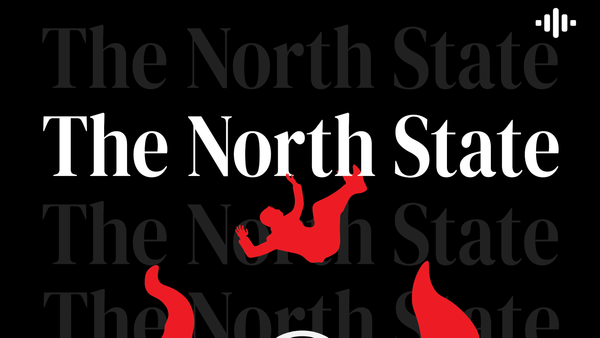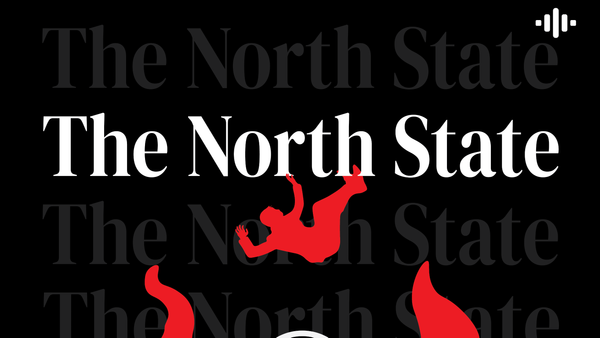News Suggests Poilievre Crossed the Thin Blue Line
Genuine revolt or missing the forest for the trees?
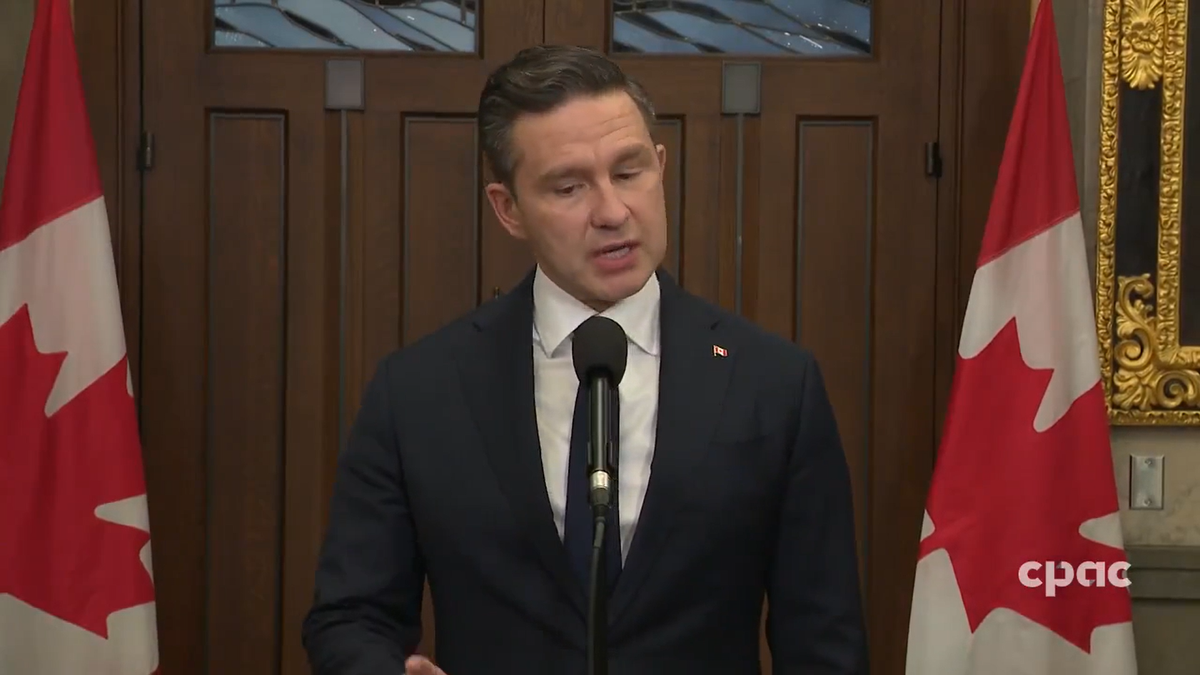
In case it may have slipped by you, federal Conservative leader Pierre Poilievre is in hot water for recent comments he made about former Liberal prime minister Justin Trudeau and the RCMP. In an interview with a clearly right-wing partisan YouTube channel, Poilievre said that the RCMP had covered up crimes of Trudeau, and that the RCMP helped. "Many of the scandals of the Trudeau era should have involved jail time," Poilievre said in the interview. "I mean, Trudeau broke the Criminal Code."
When later confronted by reporters, Poilievre denied suggesting that Trudeau should have been jailed. "In certain cases, I think there were scandals in the Liberal government that would be appropriately punished in that way." In the apparent blowback, most of the attention, at least within the Conservative Party, rests on his comments pointedly denigrating the RCMP. Poilievre said in a statement that he was specifically referring to then-RCMP commissioner Brenda Lucki.
While it is important to scrutinize the inflammatory rhetoric that Poilievre spews, there seems to be little attention paid as to why this specific comment, made on a small right-wing YouTube channel, has brought so much fallout. It's not as though Poilievre hasn't had many scandalous moments in the past.
He's met with a far-right extremist group camped out on the border between New Brunswick and Nova Scotia. He's lied about his knowledge of Diagolon, another far-right extremist group that's displayed neo-Nazi symbols and even threatened his wife with sexual assault. He's headlined an event that looked to insert far-right christian views into Alberta schools. Poilievre said the n-word in Parliament while attempting to pronounce the name of murdered Sikh activist Hardeep Singh Nijjar. During the election campaign, Poilievre staffers got physical with journalists, including shoving them.
None of these instances have reached remotely the level of attention as Poilievre's comments about Trudeau and the RCMP.
In a piece on the internal party reaction to Poilievre's comments, five Conservative caucus members are reportedly unhappy with his image, which the RCMP comments exemplify. Four of these anonymous sources are unsure of whether they'll support Poilievre in January. Meanwhile, one of the few right-wing public voices criticizing Poilievre is Dimitri Soudas, former director of communication for former Conservative Prime Minister Stephen Harper. In addition to a Toronto Star column criticizing his approach, Soudas directly referenced the federal Conservative leader's comments in an interview on The Ben Mulroney Show. "The leader of the opposition, [the] prime minister in waiting, cannot just throw out there that we should be jailing a former prime minister," Soudas said. "That the RCMP covered up evidence and the RCMP leadership is reprehensible."
"At the end of the day, police is in charge of charging people and the court is in charge of deciding whether or not those people are innocent or guilty. It is not up to politicians."
While it may feel good for those who are disgusted by Poilievre's rhetoric to hear both anonymous caucus members and a former Conservative pillar come out swinging against the leader, the tangible effects are ultimately meaningless. Among Conservative voters, 80 per cent view him positively, with only five per cent seeing him negatively.
Consider the voices from within the caucus voicing anonymous disapproval of Poilievre's comments. Their speaking with Radio-Canada/CBC hinged on not being identified; a clear sign that their position is threatened if they came out publicly. When asked publicly about Poilievre's comments, Conservative MPs mostly supported their leader, and/or deflected or ignored reporter questions. It doesn't matter how many of the parties call on Poilievre to apologize. The base that these comments target are probably giddy that these parties are offended. In many ways Poilievre's strength is making statements such as these to get his way. It's worked for him in the past, as well as his party in general.
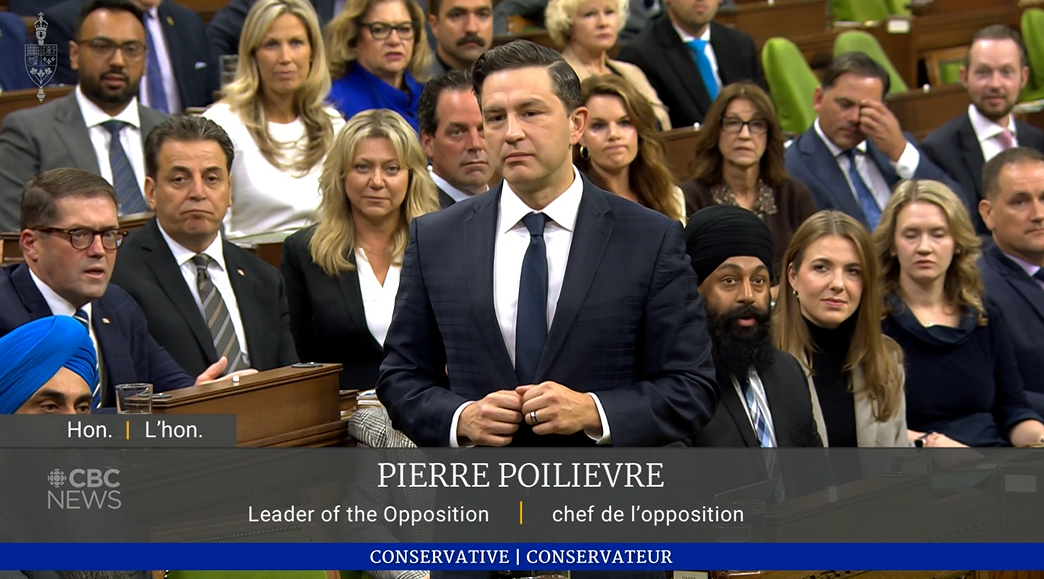
So why does this scandal seem to be one that has sticking power? To be blunt, it's because of two main factors: it echoes rhetoric of US President Donald Trump and it nominally attacks one of the sacred cows of the establishment: the police. Both are crucial in how Canadian news media operates its coverage.
Make no mistake, there are plenty of credible reasons to attack Brenda Lucki. Her and the RCMP's handling of the 2020 Portapique mass shooting alone was abhorrent. With emails from her against naming the firearms used by the shooter and a poorly received apology, there is plenty to criticize. But Poilievre wasn't criticizing Lucki for substantive reasons, he was using the critique as a vessel to go after Trudeau– Like he has for years.
Similarly, a lot of the defense of his comments from MPs have rallied around his broader support for police officers. Conservative MP Michael Barrett said that Poilievre's statement made it clear he supported RCMP officers. Another Conservative MP, Garnett Genuis, said Poilievre defends "men and women in uniform."
Let's return to that podcast clip with Soudas, the former Harper director of communications. His stance on the Liberals is similar to Poilievre's, with one key difference. "The biggest case one can make is: the Liberals are corrupt and do what needs to get done in order to what? Win an election, become Prime Minister and fix the system."
It seems that Soudas agrees that the Liberal party is corrupt and in need of realigning. But he criticizes Poilievre by saying he and the party should work to win an election. While it's certainly not clear cut by any means, it seems that Soudas' primary concern with Poilievre's statements is that they are not working towards that goal and are considered off-putting. If that's the case, it's more an issue of optics than principles. But the news media focuses on the Trumpian rhetoric and, just as crucially, Poilievre seemingly going against the institution of the RCMP.
When compared to all the previous scandals listed here, it certainly seems as though they all could have been equally concerning, if not more. But in covering this, the news media ignores Poilievre's clear preference for partisan independent media and his long history of similar moves and statements. Instead, they're shifting focus to these latest comments as though they could be the final push that might topple Poilievre in his January leadership review. They grant anonymity to public servants afraid to criticize the leader of their party with their names attached. This is not the climate of a party in rebellion.
Granting interviews to favourable right-wing independent outlets, dog whistling to extremists, outright lending support for them and heightening the populist right's agenda as part of their party platform are all viewed as par for the course in news coverage. But attacking the national police force? That's a step too far.
